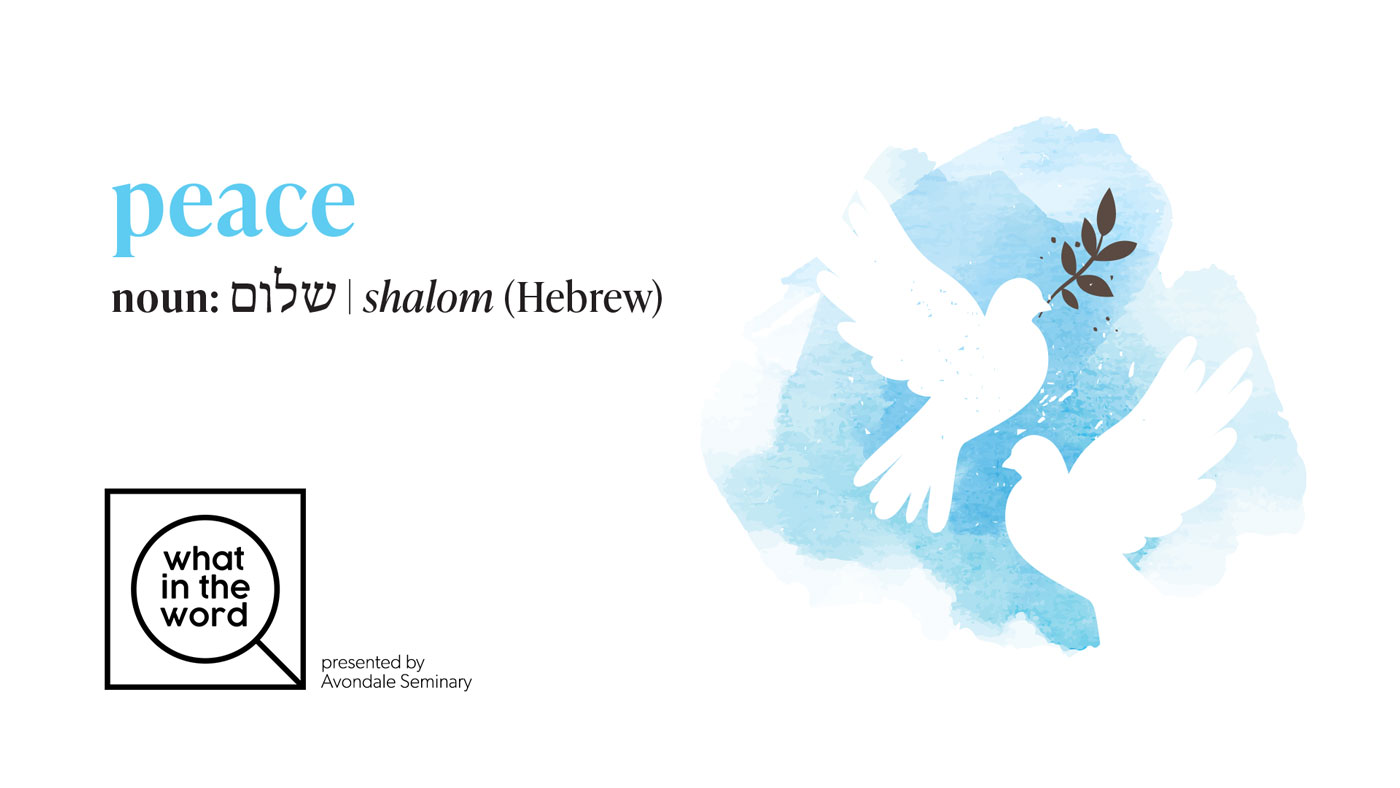If you have been a Christian for many years, it is likely that you have encountered the word shalom. It is a Hebrew word that has entered into Christian music and vocabulary. You may have heard it used as a greeting, or even sung in the chorus “Shalom, my Friend”.
The Hebrew shalom is frequently translated as “peace” in our English Bibles, where it is used to indicate friendly relationships between individuals (2 Samuel 3:21-23; 15:19), as well as a peaceful coexistence between nations sometimes bound by a peace treaty (Joshua 9:15; 1 Samuel 7:14). The outcome of peace is also anticipated by shalom. When nations experience peace, widespread trade is possible and agriculture can flourish, reducing the risk of famine and poverty. Consequently, we note that the presence of shalom was expected to be accompanied by economic prosperity (Proverbs 3:2), security (Isaiah 39:8) and joy (Proverbs 12:20). These associations hint at a wider meaning of shalom than simply the absence of strife and war.
The word shalom is derived from a verb which can mean to complete or make sound, and therefore it also has connotations of wholeness, and completeness. Consequently, we also find the Hebrew shalom also referring to general wellbeing (Psalm 35:27; Exodus 18:23), as well as health and welfare (1 Samuel 25:6; Psalm 38:3; Esther 10:3).
Shalom is valuable and thus is to be both sought after (Psalms 34:14; 37:37) and prayed for (Psalm 122:6). However, it is not available to everyone. Scripture declares that the wicked are denied shalom (Isaiah 48:22, 57:21). Instead, shalom is given to those who demonstrate obedience and righteousness (Psalm 119:165; Isaiah 32:17; 48:18).
Yet it is not our actions that bring about shalom. It is a gift of God. It is He who makes a covenant of shalom (Numbers 25:12; Isaiah 54:10; Ezekiel 34:25) with His people. Sin disrupted the shalom of God’s creation, and it is only God who can renew it. Indeed, God Himself is described as Shalom (Judges 6:24) and it is through Jesus Christ, that we can attain the peace, wholeness, completeness and health that is embraced in the idea of shalom.
This expectation is expressed in messianic prophecy. In Isaiah 9:6,7, one of the titles for Christ is the Prince of Shalom. Isaiah also predicts that this Messiah who is Himself Shalom, will bring about shalom. “But he was pierced for our transgressions, he was crushed for our iniquities: the punishment that brought us peace (shalom) was on him, and by his wounds we are healed” (Isaiah 53:5, NIV). Christ’s incarnation and suffering mean that we can experience shalom. When we enter into a faith relationship with the Prince of Shalom, this wholeness, peace and wellbeing can be ours. We can rejoice in the promise that He “will keep in perfect peace” those who trust in Him (Isaiah 26:12).
But what is experienced now is not the fullness of shalom. All creation is not yet in harmony. The Old Testament prophets point forward to a time when complete shalom will be known; a time where nothing will destroy the peace of the kingdom of God (Isaiah 11:9). At this time the predators such as the wolves and the lions will co-exist in harmony with cattle and sheep (Isaiah 11:6-9), and God’s rule will extend across the whole earth (Zechariah 9:10).
While we wait for this glorious fulfilment, Christians are called upon to seek peace in their relationships (Matthew 5:9; Romans 12:18; Hebrews 12:14) and call others to experience the peace and shalom that can be found only in Christ.
Dr Wendy Jackson is Head of Seminary at Avondale University.







